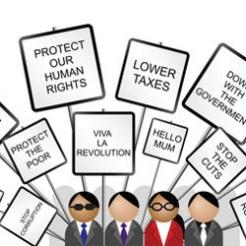The Charity Commission’s head of policy engagement and foresight has said she doesn’t expect many charities to have to register with the Electoral Commission as a third-party campaigner ahead of next year’s general election, but that charities should still check.
Caroline Cooke was speaking to charities at a public meeting organised by the Commission in Manchester yesterday, where she said: “Larger charities that do spend a large amount of money on campaigning may need to check with the Electoral Commission as to whether they need to register as a third party.
“I would be very surprised if hundreds or thousands of charities ended up needing to register,” she added.
She said that the Electoral Commission will be issuing guidance for charities by the end of this month. The election period that could restrict campaigning activity begins on 19 September.
For those charities that do register she warned that: “You don’t need to be employing many staff in the campaigns and policy research area or for your chief executive to be spending that much of their time on campaigning activity before you hit the spending limit.”
Cooke also told charities to note that the Lobbying Act applies to campaigns intended to influence the “wider general public” through activities such as market research and open events, but does not include communications with “committed supporters”, for example regular donors, people who have subscribed to newsletters or “people you regularly communicate with”.
Charities and political campaigning
Although she could not comment on Oxfam being reported to the Commission by a Conservative MP claiming its latest campaign is too political, because the case remains open, Cooke reminded charities that campaigning can only ever form a part of their activities and to “always stick to your mission” when devising campaigns.
“If you are lobbying for a change in policy, if you are doing that forever then you are morphing into a political organisation, and a political organisation can no longer be a charity. At some stage during that activity and if you’re doing nothing else year after year then you would cease to be a charity,” she said.
Cooke advised charities to keep records of discussions they have when devising campaigns as these are important if things go wrong.









